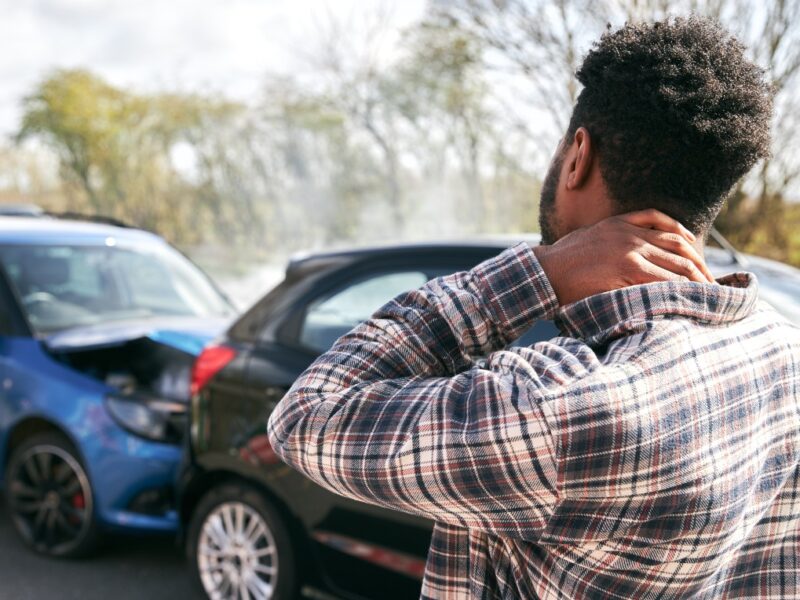Imagine this: You’re involved in a car accident in San Francisco or somewhere else in the Bay Area. You exchange insurance information, maybe take a few photos, but no police come to the scene—or maybe you didn’t think to call them. Days later, you start feeling neck or back pain, and now you’re wondering: Can I still file a car accident claim without a police report?
The short answer is yes—you absolutely can. But it can be more challenging. Don’t worry, though. In this article, we’ll walk you through everything you need to know about filing a car accident claim even if a police report was not made. And if you need help, The Hassell Law Group is here to guide you every step of the way.
Why Police Reports Matter in Car Accident Claims
A police report is often the official record of a car crash. It includes key details like:
- Date, time, and location of the accident
- The parties involved
- Witness statements
- Diagrams of the scene
- The officer’s observations and opinion on who was at fault
Insurance companies often use police reports as a trusted source when investigating liability. It can help speed up the claims process. It can also serve as strong evidence if your case goes to court.
But here’s the thing: a police report is helpful, not mandatory. Not having one doesn’t mean you’re out of luck.
Can You File a Claim Without a Police Report?
Yes—you can file an insurance claim or even pursue a personal injury lawsuit without a police report. California law does not require a police report in order to seek compensation after a car accident.
That said, you’ll likely need to bolster your claim with other forms of evidence to support your version of events, especially if fault is disputed or if you’re facing resistance from the insurance company.
Insurers may require a police report in hit and run cases and in accidents involving uninsured motorists. Its best to file a police report after a hit and run accident or if you are in an accident with an uninsured motorist. If the police did not come to the scene, you can visit the closest police station to the accident and make an over the counter police report of the incident.
Common Reasons There Might Not Be a Police Report
There are a number of valid reasons why a police report may not exist:
- The accident seemed minor at the time, so no one called the police
- Police were too busy and didn’t respond
- You didn’t realize you were injured until hours or days later
In San Francisco and many Bay Area cities, police may not respond to non-injury accidents due to staffing or policy. That doesn’t mean your injuries—or your claim—don’t matter.
How to Support Your Claim Without a Police Report
If there’s no official report, insurance companies will look more closely at other available evidence. Here’s how you can strengthen your claim:
- Photos and Videos
Visual documentation is powerful. Photos of the scene, vehicle damage, skid marks, traffic signals, and injuries can help recreate the scene.
- Medical Records
Seek medical attention right away—even if symptoms are minor at first. Once the shock of the accident wears off, injuries become apparent and you should seek medical treatment. Medical records serve as evidence that you were hurt and that your injuries are connected to the accident.
- Witness Statements
If anyone saw the crash happen, their account could be crucial. Get their contact info as soon as possible.
- Your Own Notes
Write down everything you remember about the accident as soon as you can. Include weather conditions, how the crash occurred, what the other driver said at the scene, and any injury symptoms you are having.
- Vehicle Repair Estimates
Detailed repair invoices can help prove the force and location of the impact, which may support your injury claims.
- Dash Cam Footage
If you or a witness has dash cam video, it could be golden for proving fault.
What If the Other Driver Denies Fault?
Without a police report, it’s easier for the other driver to change their story. They might claim you were at fault or that the accident never happened the way you described it.
This is where having a skilled car accident attorney becomes essential.
At The Hassell Law Group, we know how to gather compelling evidence, work with experts if needed, and negotiate with insurance companies who try to take advantage of the situation. Our team knows how to build a strong case—even without a police report.
How Insurance Companies May Respond
Be prepared: insurance companies may try to use the lack of a police report to their advantage. They may:
- Question the severity of your injuries
- Suggest the accident wasn’t serious
- Delay or deny your claim due to “insufficient documentation”
They know the average person isn’t familiar with the claims process. That’s why having experienced legal representation can make a huge difference in how your case is handled.
When to Contact a Car Accident Lawyer
If any of the following apply to your situation, it’s time to talk to a lawyer:
- You were injured, even if the injury showed up later
- The other driver is blaming you
- The insurance company is downplaying or denying your claim
- You feel overwhelmed and unsure how to proceed
The Hassell Law Group has helped injured people in San Francisco and throughout the Bay Area recover the compensation they are entitled to. We understand the tactics insurers use—and we don’t let them get away with it.
You’re Not Out of Options—We’re Here to Help
No police report? No problem. While having one can make the claims process smoother, it’s not a deal breaker.
What matters most is that you act quickly and collect as much evidence as possible. And if you need help putting it all together—or going up against an uncooperative insurance company—we’re ready to fight for you.
The Hassell Law Group is an award-winning San Francisco personal injury law firm with a track record of success. If you were hurt in a car accident, don’t wait. Let us help you protect your rights and get the compensation you deserve.
Contact Us Today for a Free Consultation
Call us on (415) 334-4111 to discuss your case. Let us handle the legal side, so you can focus on healing.
The general information provided on this website should not be considered legal advice and does not constitute legal advice. For legal advice, you should consult directly with an attorney. If you contact us by telephone, email, letter, or contact form submission through this website, please note that such communication does not create or constitute an attorney-client relationship. We cannot act as your attorney until we are hired as your attorney by a formal written agreement.


 How Long Does a California Car Accident Settlement Take?
How Long Does a California Car Accident Settlement Take?